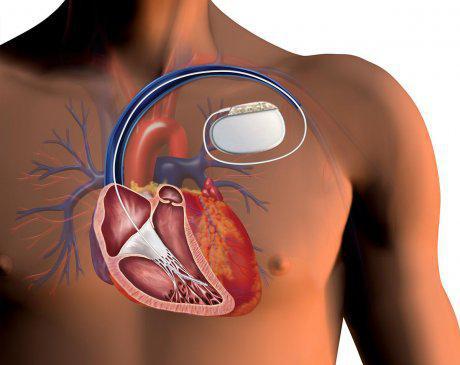As many as 3 million people around the world rely on the support of a pacemaker to maintain a regular heartbeat. Board-certified cardiologist, Khuyen Do, MD, is highly experienced in pacemaker implant surgery and offers comprehensive care following the placement of the device at Houston Cardiology in Southwest Houston, Texas.
Dr. Do and his medical team also provide diagnostic technologies on site to determine if a pacemaker is the right treatment option for you. To find out more about the short-term and long-term benefits of a pacemaker, call Houston Cardiology today to schedule a consultation.
Pacemaker Q & A
What is a pacemaker?
A pacemaker is a small, implantable device that helps regulate your heart rhythm. The pacemaker uses electrical pulses of energy to stimulate your heart to beat at a normal rate.
In a healthy heart, the electric system controls the rhythm and rate of your heart. During a heartbeat, an electrical signal travels from the top of your heart to the bottom, stimulating the heart muscle to contract and pump your blood. The contractions of the heart chambers are what make up your heartbeat.
Why do I need a pacemaker?
You may need a pacemaker to treat an arrhythmia, a condition that describes a heartbeat that’s too slow (bradycardia) or too fast (tachycardia).
An arrhythmia makes it difficult for your heart to pump out enough blood to support function in your body, which can lead to chronic fatigue and persistent shortness of breath, among other symptoms. If left untreated, the condition can lead to serious heart-related complications and organ damage.
A pacemaker can also address other conditions that cause an irregular heartbeat. A pacemaker can:
- Speed up a slow heartbeat
- Control an abnormal rhythm
- Normalize ventricular contractions
- Regulate electrical signals between the upper and lower heart chambers
Additionally, pacemakers record and monitor your heart’s electrical activity and rhythm, making it easier for Dr. Do and his team to evaluate your heart health over time. They can use this information to determine if you need a temporary or a permanent pacemaker based on your heart function and existing health.
What happens during pacemaker surgery?
The surgical procedure to implant a pacemaker is minor. Your Houston Cardiology specialist provides you with intravenous (IV) sedation to keep you comfortable and relaxed.
To connect the leads of the pacemaker to your heart, your doctor inserts a needle into a large vein near your shoulder. They thread the pacemaker wires through the vein and positions them in your heart.
To place the pacemaker device, your Houston Cardiology provider makes a small incision near your chest or abdomen and inserts the device, which contains a generator and battery, just under your skin. They connect the wires to the pacemaker and test it before closing the incision.
You may need to limit your activity for several weeks after surgery to prevent complications while you heal. Your physician provides you with comprehensive instructions for living with a pacemaker, such as avoiding strong magnetic fields that can interfere with the function of your pacemaker.
The Houston Cardiology team continues to monitor your heart health and the function of your pacemaker during routine check-ups. They can determine when you need to replace the batteries in the device and can repair the pacemaker if the wires break or other issues arise.
If you have an irregular heartbeat, contact Dr. Do and his cardiology team to find out if a pacemaker is right for you. You can call Houston Cardiology today to schedule an appointment.
